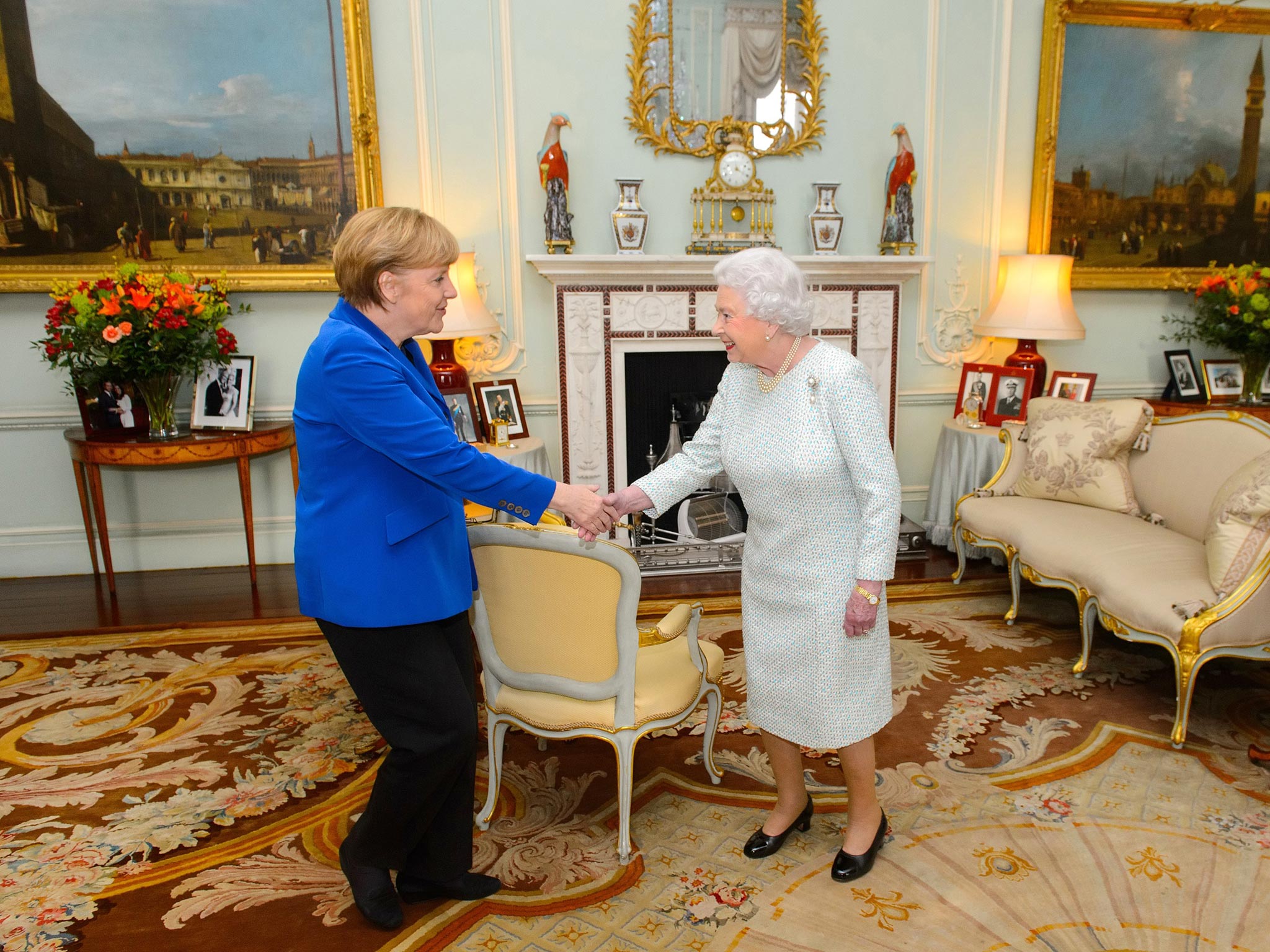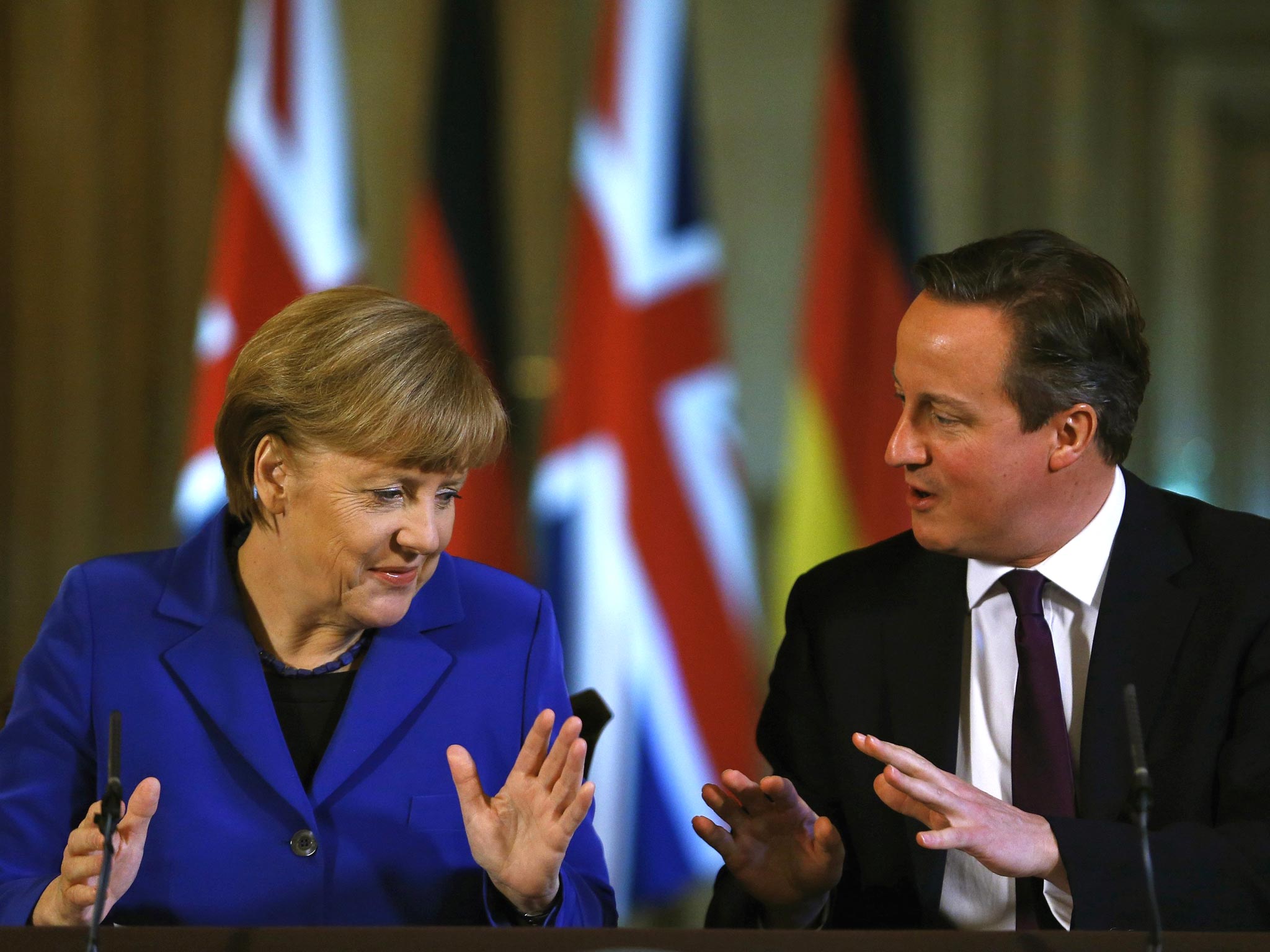Is our ridicule of Germany a cover for the fear that we too could have fostered Nazism?
We have more in common than we’re comfortable admitting

While Angela Merkel was in London this week crushing Tory hopes of an easy end to EU rows and learning about the British monarchy, I was in the German city of Hanover, crushing waiter hopes of an easy end to the lunch shift, and learning about the line of German kings who came to rule Britain.
We’re all aware that with the 100th anniversary of the outbreak of the First World War, 2014 marks an important moment in the shared history of Germany and Britain. Less widely noted is that 2014 also marks 300 years since the 1714 Hanoverian Succession, when a duke from the Electorate of Hanover was plucked from (relative) obscurity and crowned George I of Great Britain and Ireland.
Apart from highlighting the pitifully shallow gene pool of European royalty – all that intermarriage can’t be healthy, can it? – the Hanoverian family tree reminds us just how intertwined the histories of Germany and Britain are. This fact was carefully glossed over from 1914, when the Hun became our national enemy, and fervently denied from 1939, by which time the German people had fallen under Nazi sway.
So here’s your refresher course: Queen Victoria didn’t just marry a German. That German, her first cousin, Prince Albert of Saxe-Coburg and Gotha, was already a member of the family. Moreover, Victoria was a direct descendant of the first Hanoverian king George I. No doubt David Cameron was too tactful to mention it over coffee at No 10, but were the German monarchy still in existence, he’d have a better claim to the throne than Chancellor Merkel. The Camerons are descended from the last Hanoverian king, William IV, through the bastard FitzClarence line.
All this only underlines how meaningless it is to talk of national identity in the context of European aristocracy. For much of their history, these French-speaking courtiers had more in common with each other, regardless of nationality, than they did with the ordinary subjects of their own kingdoms. The same might be said of the jet-setting, international super-rich today – although their shared language is English, and wealth, not birth, is their unifying trait.

Knowing this, as we do, much of Britain’s national pride rests on two convenient beliefs: that the cultural connection between Germany and Britain was suspended with the onset of war and that, in any case, such a connection was never felt among ordinary Britons.
This week’s revelations about the activities of a wartime MI5 operative codenamed “Jack King” demonstrate what a fiction this is. According to newly released Security Service files, it wasn’t just the odd wayward Mitford sister who found Hitler beguiling. Between 1940 and 1945, King discovered “hundreds” of British-born fascists enthusiastically committing treason against their own country – or at least they who would have done if British intelligence services hadn’t contained them in a counter-espionage operation. How many more Britons with less virulent pro-German sentiments remained undetected? And how many simply fought for (German-descended) king and country without feeling any particular hatred of the enemy’s fascist ideology?
It’s an anxiety that’s still discernible in British culture. My travel party had barely touched down in Hanover airport this week before someone cracked a joke comparing the stern woman at passport control to an SS officer. After that, the references to “German efficiency” flowed as freely as the Beck’s lager in a British pub. Any formal German/British encounter is liable to result in Basil Fawltyish cases of mention-itis, but the compulsion is more than just mischief. It’s a way to ward off the increasingly unavoidable conclusion that our two nations have more in common than we’re comfortable admitting.
There’s our joint Anglo-Saxon heritage, our Protestantism by way of Martin Luther, our love of beer and – if gags about towels on deck chairs still pass for wit in Britain – our terrible sense of humour. Most of all, Britain and Germany both have a history containing many dark incidents we’d rather deny or disown. It still comforts Brits to think there’s something intrinsically German which gave rise to the evil of Nazism. If there is, that same something may lurk in the British character too.
REVEALED: HOW MI5 INFILTRATED BRITAIN'S WARTIME NAZI SPY NETWORK
Join our commenting forum
Join thought-provoking conversations, follow other Independent readers and see their replies
Comments
Bookmark popover
Removed from bookmarks